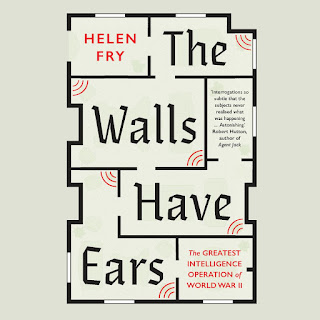Radio Operator on the Eastern Front - Erhard Steiniger
This is the second of my book reviews on the German soldiers’
experiences in World War II.
Erhard Steinigers autobiography ‘Radio Operator on the
Eastern Front’ takes you on a journey from Conscription through Barbarossa to
the battle of Leningrad and finally to being a prisoner of the Soviets.
Steiniger’s reflections saw him serve in Lithuania, Latvia, Estonia,
and Russia as a signaler in the 151st Infantry Regiment. As a signaler he had to be at the forefront
of the battle with the soldiers and this is very much a first-hand account of
what that experience was like. The
horrors of war on the Eastern Front are really drawn out.
This book is exceptional well written and translated. The autobiography does not glorify war but
shows what war was like for a soldier on the ground right at the forefront of a
battle. The life and horrors that were
experienced. The over 110 illustrations and photographs throughout
the books give a fascinating insight into life of Erhard Steiniger and really
compliment the writing. As a first-person
account this is a valuable resource for anyone interested in the Eastern Front
and learning more about what life was like.
It also, highlights battles and areas of war that some might not be
familiar with and that is a real bonus that builds a picture of the war.
No matter what we think of the German army and its beliefs
and command it is important to keep understanding what life was for these
soldiers and these human stories need to be continued to be told.
This book is a page turner, who would have thought the life
of a signaler could be so interesting, the writing grips you and really sets
out the authors experiences throughout the war. This is a worthwhile purchase.
This is a highly recommended must-read book for anyone with
a fascination on the Eastern Front.



Comments
Post a Comment